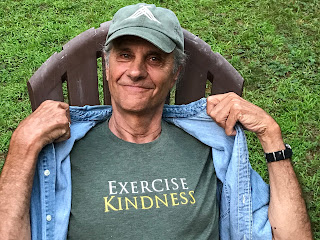How Can We Teach Kids to Take Social Action?
Welcome back to the Quaker School Voices Blog! And welcome back to school. For our first entry of the year, we have a timely piece considering the large discussions surrounding Syria and the role of pacifism in conflicts. If you are interested in submitting a piece for our bi-weekly blog, please contact me at christen@nobisproject.org. We look forward to sharing new entries from students, alumni, teachers, staff, administrators and parents. And please share the blog with others you think might be interested.
-Christen
Following post by Chris Searle, teacher at Princeton Friends School
The other day my two daughters and I were in the grocery
store shopping when a woman a fair distance away in the baking section reached
for a pastry only to have the whole shelf fall on her. Only catching the event out of the
corner of my eye, while trying to corral my 3 year old and 8 year old towards
the end of a long shopping trip, I strived to herd us down the next aisle. However, the next thing I noticed was
my 8 year old leading her sister over to help the woman. Although my first thought was “Why are
my children not listening to me?” I was proud of their willingness to help
someone in need automatically. At
the most basic level, this is what I hope to teach students who take my US
history class in 8th grade: “Your actions matter.”
Growing up attending Quaker schools, one of my earliest
misunderstandings of Quakerism was the notion that pacifists were indeed
passive. In actuality, social
action takes an inordinate degree of empathy, planning, and concentrated
effort. Most of all, it requires
the belief that your thoughts and actions matter because it is only in this
belief that we bother to take the time to make a difference. As institutions, schools have often
implicitly taught children that life is something that happens to you. There is a natural passivity that takes
hold as rules and procedures are followed; tests are taken, and we realize we
are essentially average, no better, smarter, faster, or more handsome than
our neighbors. While we might have an inspiring teacher telling us
we need to create a better world, we think to ourselves how can an average
person make a difference?
Here lies one of the most important missions of a Quaker
school: To nurture the belief in children that their voice can have an impact
on the world in which they live, while at the same time, helping them to
develop the empathy needed to recognize the face of social injustice and to
give them the courage to act.
Raising children to listen carefully to the needs of others,
while having the confidence to share their own authentic voice, can be
cultivated by giving the time necessary to build rich and vibrant communities
around shared learning.
My 8 year old daughter has been attending Princeton Friends
School for 3 years now. When I read her end of year report, her
reading and math were, well, average, or should I say, right where
she should be. What stood out though was her willingness to share
herself with the community. Speaking at Meeting for Worship, helping
younger students during Community Outreach, sharing her artwork with her older
Meeting partner, all showed her willingness to engage her community. By
sharing herself and being open to the feedback from others, she is learning
that both her own voice and the voice of others is important.
This engagement in shared communities becomes even more
important as students head toward those tricky adolescent years. As a teacher I've observed older
students often claim their greatest voice by experiencing firsthand the impact
they can have on younger children.
I saw this in action this past school year. My daughter’s older Meeting partner was thrilled to learn
that her meticulously crafted cards to my daughter helped my 8 year olds’
artist talents blossom. By putting
the time and thoughtful effort in sharing part of herself, this 8th grader
realized her actions mattered. So
while I had some success in teaching this young adolescent that she will help
decide how the country spends its money, whether we choose to go to war, and
how we treat our most vulnerable citizens; it was her first-hand experience
getting to know someone, sharing an interest, and taking the time to care,
which ultimately taught her the power of taking social action. By instilling such an attitude in our
children during their formative years, these Quaker students will learn the
importance of making a connection and taking action to help those around
them. As they get older they will
know their voice matters and, in turn, this will allow them to speak out against
injustice no matter where they fall on the bell curve.


Comments
Post a Comment